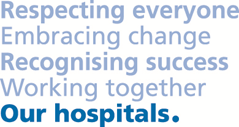Diet
Diet and nutrition is really important if you have Cystic Fibrosis. You might have already learnt a bit about why. Having Cystic Fibrosis means that you burn more energy and may require help with the digestion of foods which can affect absorption and therefore overall growth. Achieving and maintaining a good weight is essential for maintaining good lung function and helping withstand infection.
You will have seen a dietitian in paediatric clinics and hopefully have had an opportunity to meet the adult dietician through transition clinics. This can help you to develop a relationships with the professionals in adult services so that you feel more comfortable taking on responsibility for conversations and beginning to ask more questions about your nutrition and health.
As a young person you might find your lifestyle is changing and different routines will be established with the progression from school to university or starting work, these changes will have a direct impact on your nutrition and your dietitian will be able to help you maintain adequate nutrients whilst establishing a change in routine. There can also be pressure from the media and peers and around appearance which it might be helpful to talk to your dietician about if you are finding this difficult.
You will have heard your dietitian explaining to you how important it is to have high calorie foods and why you need to take your nutritional vitamins and supplements. Your dietitian will be able to work with you to optimise your nutrition if you are feeling unwell as it can be struggle to meet the calories needed when you are feeling less well. It is imperative you talk with your Cystic Fibrosis nurse or dietitian to discuss ways to maintain your weight and adequate nutrition. Some people with CysticFfibrosis have problems with the absorption of foods and this is called "pancreatic insufficiency", this is when you take enzyme capsules to help absorb your food and get the most out of what you eat to aid growth. Your dietitian can help you get this balance right.
Cystic Fibrosis and your pancreas
Eating well is vital for people with Cystic Fibrosis, as the small channels that carry digestive juices can become clogged with mucus, making it harder to break down food. This process can also cause damage to the pancreas. Only around 10% of people with Cystic Fibrosis retain any useful pancreatic function, meaning that digestive juices (enzymes) do not reach the stomach in order to break down food properly so that the body can use it to produce energy. This means that most people with Cystic Fibrosis require enzyme capsules with all meals and snacks. The amount of capsules needed depends on the food being eaten, and varies from person to person, but it can be as many as 60 a day. Being a healthy weight can improve the chances of fighting off chest infections, so a suitable diet is important. It is also necessary to build up reserves in case of weight loss during times of illness. A healthy diet for someone with Cystic Fibrosis is:
- High in energy (calories) - the body of someone with cystic fibrosis has to work harder, and has higher energy requirements.
- Rich in fat and protein - to compensate for the amount wasted as food is not fully digested.
As with any diet, the exact amount of these elements varies by age and from person to person. You can find out more about diet and Cystic Fibrosis here and through taking to your dietician.






